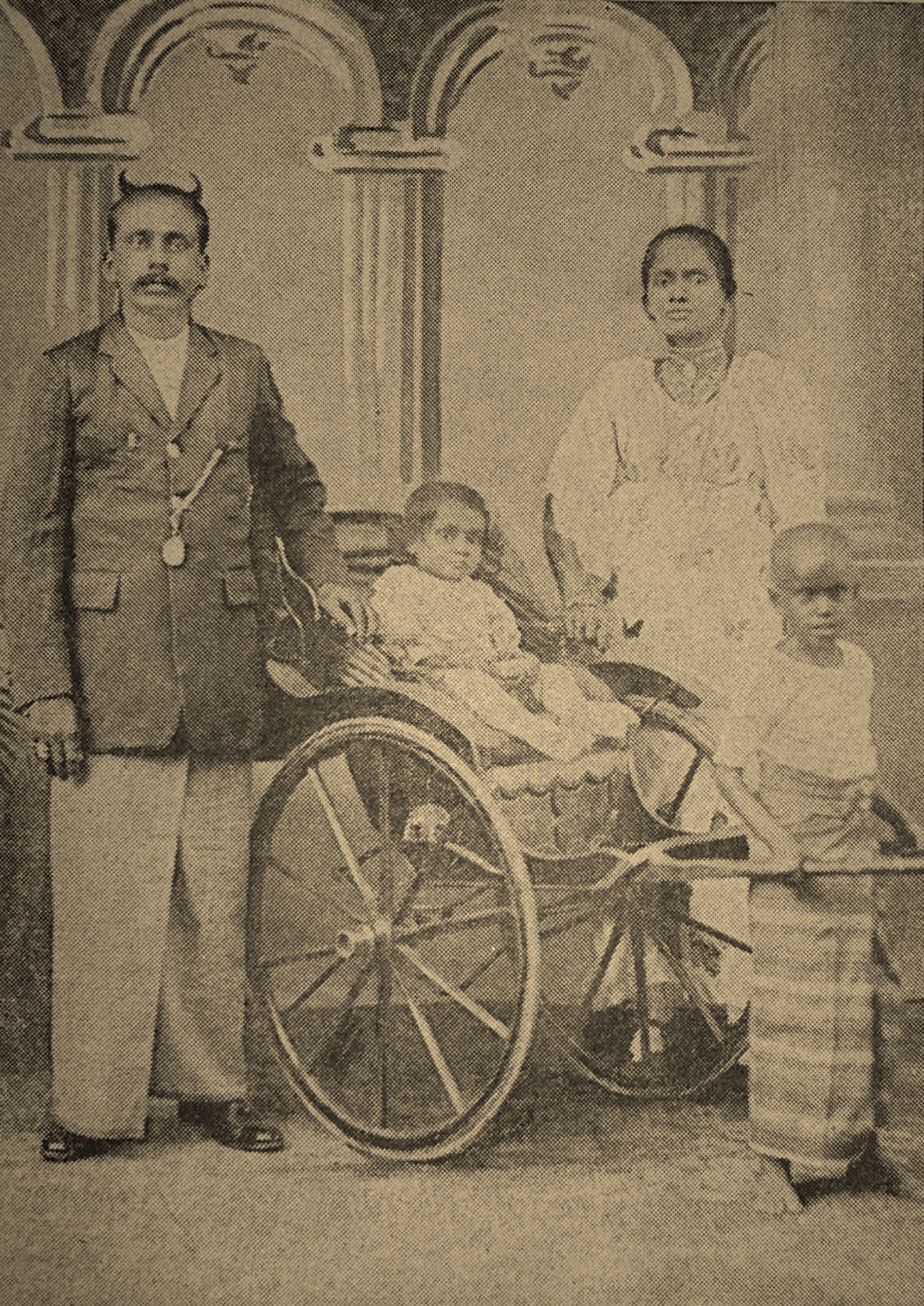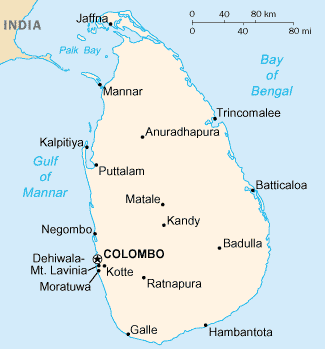|
Batalanda Detention Centre
Batalanda detention center was an alleged detention center used to torture and exterminate members of the janatha vimukthi peramuna ( JVP) during JVP uprising of 1988–1989 who launched a second armed revolt against an elected government then led by President Ranasinghe Premadasa Unlike the previous open uprising the JVP relied on assassinations of important religious and political figures, subversion, and terror attacks. The government replied brutally showing no mercy and the government has been accused of using detention camps in several places including Batalanda to quell the JVP uprising. These were said to be run by anti-subversive units of the police who were tasked with destroying rebels It is believed that nearly 5,000-10,000 members of JVP activists were brutally tortured and killed in this camp. Ranil Wickremesinghe is accused of being the political authority of the alleged detention center. Batalanda commission was appointed by the government of Chandrika Kumaratunga ... [...More Info...] [...Related Items...] OR: [Wikipedia] [Google] [Baidu] |
Janatha Vimukthi Peramuna
Janatha Vimukthi Peramuna (JVP; ) is a Marxist–Leninist communist party and a former militant organization in Sri Lanka. The movement was involved in two armed uprisings against the government of Sri Lanka: once in 1971 (SLFP), and another in 1987–89 ( UNP). The motive for both uprisings was to establish a socialist state. The JVP was initially a small organisation that became a well-organised party that could influence mainstream politics. Its members campaigned openly for the left-wing coalition government, United Front. Following their disillusion with the coalition, they started an insurrection against the Dominion of Ceylon in early 1971, which intensified following the ban on the party. The military arm the Red Guard captured over 76 police strongholds throughout the island of Ceylon. The JVP entered democratic politics in 1977 when President J.R. Jayewardene released the JVP leader, Rohana Wijeweera, from prison. After the United Front coalition government co ... [...More Info...] [...Related Items...] OR: [Wikipedia] [Google] [Baidu] |
Ranasinghe Premadasa
Sri Lankabhimanya Ranasinghe Premadasa ( si, රණසිංහ ප්රේමදාස ''Raṇasiṃha Premadāsa'', ta, ரணசிங்க பிரேமதாசா ''Raṇaciṅka Pirēmatācā''; 23 June 1924 – 1 May 1993) was the third President of Sri Lanka from 2 January 1989 to 1 May 1993. Before that, he served as the prime minister in the government headed by J. R. Jayewardene from 6 February 1978 to 1 January 1989. He was awarded Sri Lanka's highest award to a civilian Sri Lankabhimanya in 1986 by President Junius Richard Jayewardene, the first to receive in Sri Lankan history. Early life Ranasinghe Premadasa was born on 23 June 1924 at Dias Place, Colombo 11, to the family of Richard Ranasinghe (Ranasinghe Mudalali) of Kosgoda and Battuwita Jayasinghe Arachchige Ensina Hamine of Batuwita, Horana. Premadasa was the oldest of five children, three sisters, and one brother. His father was engaged in the transport business in Colombo employing rickshaws. H ... [...More Info...] [...Related Items...] OR: [Wikipedia] [Google] [Baidu] |
Ranil Wickremesinghe
Ranil Wickremesinghe ( si, රනිල් වික්රමසිංහ, ta, ரணில் விக்கிரமசிங்க; born 24 March 1949) is a Sri Lankan politician who is the current president of Sri Lanka since 21 July 2022. He also holds the position of Minister of Finance of Sri Lanka. He has been the leader of the United National Party since 1994. He served as Prime Minister of Sri Lanka in five separate stints, leading six governments, from 1993 to 1994, 2001 to 2004, 2015 to 2018, 2018 to 2019, and in 2022. He also served as Leader of the Opposition from 1994 to 2001 and from 2004 to 2015. Born to a wealthy political family, he graduated from University of Ceylon and qualified as an advocate from the Ceylon Law College in 1972. Entering active politics in the mid-1970s with the UNP, he was first elected to Parliament from the Biyagama electorate in the 1977 parliamentary elections and was appointed Deputy Minister of Foreign Affairs, by his uncle ... [...More Info...] [...Related Items...] OR: [Wikipedia] [Google] [Baidu] |
Chandrika Kumaratunga
Chandrika Bandaranaike Kumaratunga ( si, චන්ද්රිකා බණ්ඩාරනායක කුමාරතුංග, ta, சந்திரிகா பண்டாரநாயக்க குமாரதுங்க; born 29 June 1945) is a Sri Lankan politician who served as the fifth President of Sri Lanka, from 12 November 1994 to 19 November 2005. The country's first and only female president to date and the country's second female prime minister. She is the daughter of two former prime ministers and was the leader of the Sri Lanka Freedom Party (SLFP) until the end of 2005. Early life and family Chandrika Bandaranaike was born on 29 June 1945, at Wentworth in Guildford Crescent, Colombo to Solomon West Ridgeway Dias Bandaranaike and Sirima Ratwatte Dias Bandaranaike. The family moved the year later to a mansion at Rosmead Place, Colombo purchased by her paternal grandfather. Her father S. W. R. D. Bandaranaike was an Oxford educated barrister who wa ... [...More Info...] [...Related Items...] OR: [Wikipedia] [Google] [Baidu] |
Sri Lanka Mahajana Pakshaya
The Sri Lanka Mahajana Pakshaya (SLMP; Sri Lanka People's Party) is a political party in Sri Lanka, founded in 1984 by Vijaya Kumaranatunga. History 1980s Vijaya Kumaranatunga founded the party in 1984 and led it until his assassination in 1988. His wife, Chandrika Kumaranatunga, led the party for a short time after his death. The SLMP supported the Provincial Council Act and ran against the United National Party (UNP) in 1988. The SLMP candidate, Ossie Abeygunasekera, placed third in that year's presidential election with 235,719 votes (4.63%). Abeygunasekara served as the party's leader until he crossed over to the UNP in 1993. The party lost 117 leading members during the revolution of 1988–89, including Vijaya Kumaranatunga, Pohoddaramulle Pemaloka Thero, T. B. Wijesuriya, and Deva Bandara Senarathne. Shortly after Kumaranatunga's assassination, the SLMP joined with the Communist Party of Sri Lanka, the Lanka Sama Samaja Party, and the Nava Sama Samaja Party to form ... [...More Info...] [...Related Items...] OR: [Wikipedia] [Google] [Baidu] |
Vijaya Kumaranatunga
Kovilage Anton Vijaya Kumaranatunga ( si, කොවිලගේ ඇන්ටන් විජය කුමාරණතුංග; ta, விஜய_குமாரணதுங்க; 9 October 1945 – 16 February 1988), popularly known as Vijaya Kumaratunga'','' was a Sri Lankan film actor, playback singer and a politician. Regarded as one of the most popular icons in Sri Lankan cinema of all time. He was married to former Sri Lankan President Chandrika Kumaranatunga from 1978 until his assassination in 1988. He was the Founder of Sri Lanka Mahajana Party. Early life He was born on October 9, 1945, at the government hospital in Ragama to Roman Catholic parents. His father was Kovilage Benjamin Kumaratunga, a village headmen and mother was Clara Beatrice Perera. Vijaya had three brothers and sisters: Sydney Kumaratunga, Vivian Kumaratunga and Rupa Kumaratunga. He received his primary education at Seeduwa Davisamara Maha Vidyalaya, secondary education at St. Benedict's Colleg ... [...More Info...] [...Related Items...] OR: [Wikipedia] [Google] [Baidu] |
Prisons In Sri Lanka
A prison, also known as a jail, gaol (dated, standard English, Australian, and historically in Canada), penitentiary (American English and Canadian English), detention center (or detention centre outside the US), correction center, correctional facility, lock-up, hoosegow or remand center, is a facility in which inmates (or prisoners) are confined against their will and usually denied a variety of freedoms under the authority of the state as punishment for various crimes. Prisons are most commonly used within a criminal justice system: people charged with crimes may be imprisoned until their trial; those pleading or being found guilty of crimes at trial may be sentenced to a specified period of imprisonment. In simplest terms, a prison can also be described as a building in which people are legally held as a punishment for a crime they have committed. Prisons can also be used as a tool of political repression by authoritarian regimes. Their perceived opponents may be impris ... [...More Info...] [...Related Items...] OR: [Wikipedia] [Google] [Baidu] |
Enforced Disappearances In Sri Lanka
Thousands of people have disappeared in Sri Lanka since the 1980s. A 1999 study by the United Nations found that Sri Lanka had the second highest number of disappearances in the world and that 12,000 Sri Lankans had disappeared after being detained by the Sri Lankan security forces. A few years earlier the Sri Lankan government had estimated that 17,000 people had disappeared. In 2003 the Red Cross stated that it had received 20,000 complaints of disappearances during the Sri Lankan Civil War of which 9,000 had been resolved but the remaining 11,000 were still being investigated. Human rights groups such as Amnesty International, Human Rights Watch and Asian Human Rights Commission have documented many of the disappearances and attributed them to the Sri Lankan security forces, pro-government paramilitary groups and Sri Lankan Tamil militant groups. In 2016, the government under president Maithripala Sirisena agreed to issue a certificate of absence to relatives of over 65,000 t ... [...More Info...] [...Related Items...] OR: [Wikipedia] [Google] [Baidu] |
Political Repression
Political repression is the act of a state entity controlling a citizenry by force for political reasons, particularly for the purpose of restricting or preventing the citizenry's ability to take part in the political life of a society, thereby reducing their standing among their fellow citizens. It is often manifested through policies such as human rights violations, surveillance abuse, police brutality, imprisonment, involuntary settlement, stripping of citizen's rights, lustration, and violent action or terror such as the murder, summary executions, torture, forced disappearance, and other extrajudicial punishment of political activists, dissidents, or general population. Political repression can also be reinforced by means outside of written policy, such as by public and private media ownership and by self-censorship within the public. Where political repression is sanctioned and organised by the state, it may constitute state terrorism, genocide, politicide or cr ... [...More Info...] [...Related Items...] OR: [Wikipedia] [Google] [Baidu] |
Sri Lanka And State Terrorism
The Sri Lankan state has been accused of state terrorism against the Tamil minority as well as the Sinhalese majority, during the two Marxist–Leninist insurrections. The Sri Lankan government and the Sri Lankan Armed Forces have been charged with massacres, indiscriminate shelling and bombing, extrajudicial killings, rape, torture, disappearance, arbitrary detention, forced displacement and economic blockade. According to Amnesty International state terror was institutionalized into Sri Lanka's laws, government and society. History 20th century Sri Lanka gained independence from Britain in 1948 as the Dominion of Ceylon, although the British Royal Navy retained a base there until 1956. In 1972, the country became a republic, adopting the name Sri Lanka. Since this time, the country has experienced several major conflicts – a civil war, Marxist uprisings, also several other conflicts. Marxist-Leninist insurrections From 1985 to 1989, Sri Lanka responded to violent in ... [...More Info...] [...Related Items...] OR: [Wikipedia] [Google] [Baidu] |






